Come join us now, and enjoy playing your beloved music and browse through great scores of every level and styles!
Can’t find the songbook you’re looking for? Please, email us at: sheetmusiclibrarypdf@gmail.com We’d like to help you!
Table of Contents
(Musician, composer, author and actor, born Gordon Sumner on October 2, 1951, in Wallsend, England)
Who is Sting (b. 1951)?
Sting is a Renaissance man — singer, songwriter, composer, multi-instrumentalist, author, actor, and activist. Named one of Time magazine’s 100 most influential people in the world in 2011, he’s been performing for more than four decades, with 16 Grammy Awards, an Emmy Award, and three Oscar nominations to his credit. He defies categorization, deftly incorporating jazz, punk rock, folk and gospel, singing in Spanish and Portuguese, even reimagining his own celebrated songs for symphonic arrangement.

Best Sheet Music download from our Library.
The Shape of My Soul: The Enduring Legacy of Sting
Few artists in modern music have managed to reinvent themselves as successfully and continuously as Gordon Sumner, known to the world as Sting. From the explosive, reggae-infused punk of The Police to a sophisticated solo career weaving through jazz, classical, and world music, his journey is one of relentless musical curiosity and intellectual ambition. He is a master songwriter, a distinctive bassist, and a vocalist with an unmistakable timbre, whose work has left an indelible mark on the landscape of pop and rock.
Biography: From Schoolteacher to Rock Star
Born on October 2, 1951, in Wallsend, a shipbuilding town in Northeast England, Gordon Sumner’s childhood was steeped in the working-class reality of post-war Britain. His early musical influences were eclectic, ranging from the jazz records his father loved to the emerging rock and roll of the 1950s and 60s.

Please, subscribe to our Library.
If you are already a subscriber, please, check our NEW SCORES’ page every month for new sheet music. THANK YOU!
Before music became his full-time pursuit, Sting trained as a teacher. Ironically, it was while working as a secondary school teacher that he began playing jazz in local clubs in the evenings. The nickname “Sting” originated during this period, due to a black and yellow striped sweater he frequently wore that made him resemble a wasp.

The turning point came in 1977 when he moved to London with his first band, Last Exit. It was there he met drummer Stewart Copeland, an American ex-pat who envisioned a new rock band inspired by the energy of punk. Copeland recruited Sting and guitarist Henri Padovani (soon replaced by the virtuosic Andy Summers), and The Police were born.

The Police: A Trio of World Conquest (1977-1986)
The Police were an anomaly. They channeled the raw energy of the punk era but infused it with sophisticated musicality. Their sound was a unique trifecta:
- Stewart Copeland’s frenetic, reggae and punk-inspired drumming.
- Andy Summers’ textural, jazz-chord infused guitar work, often using complex harmonics and effects.
- Sting’s melodic, propulsive bass lines (often the lead melodic instrument) and his clear, soaring tenor vocals.
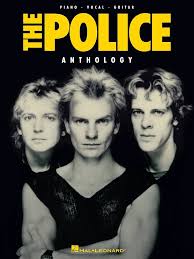
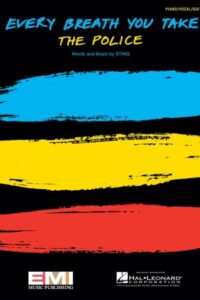
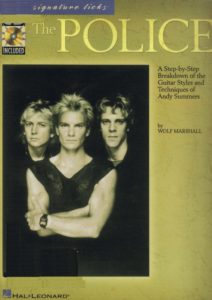

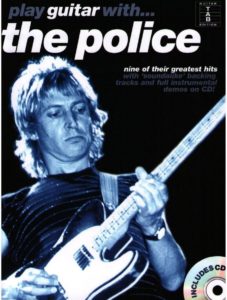
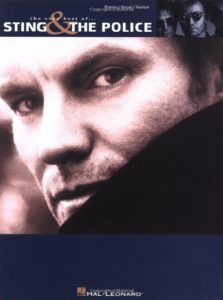


Browse in the Library:
Or browse in the categories menus & download the Library Catalog PDF:
This combination resulted in a string of iconic, intelligent pop hits that dominated the charts worldwide. Their albums charted a course from lean new wave (Outlandos d’Amour, 1978) to polished, globally-minded rock (Synchronicity, 1983). Tensions within the band, creative differences, and Sting’s desire to pursue solo projects led to their disbandment in 1986 after a massive world tour, though they have reunited for select tours in subsequent decades.
Most Famous Songs with The Police:
- “Roxanne”
- “Message in a Bottle”
- “Walking on the Moon”
- “Don’t Stand So Close to Me”
- “Every Little Thing She Does Is Magic”
- “King of Pain”
- “Every Breath You Take”
Solo Career: The Explorer (1985-Present)
Sting launched his solo career in tandem with the final Police album, releasing the jazz-inflected The Dream of the Blue Turtles in 1985. He boldly hired young, acclaimed jazz musicians (including Branford Marsalis on saxophone) instead of a traditional rock band, signaling his intent to follow his own muse.
Its eclecticism characterizes his solo work. He has explored:
- Jazz and Classical Influences: Albums like …Nothing Like the Sun (1987) and The Soul Cages (1991) are rich with complex harmonies and structures.
- Elizabethan Music: He recorded Songs from the Labyrinth (2006), an album of music by 16th-century composer John Dowland.
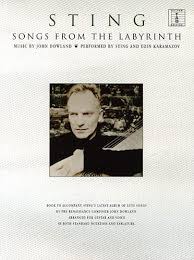
- Musical Theatre: He wrote the music for and starred in the Broadway show The Last Ship (2014), inspired by his childhood memories of the Newcastle shipyards.
- Collaborative Projects: His 2009 album If on a winter’s night… focused on wintry folk and classical themes.
Musical Style, Instruments, and Harmony
- Instruments: Sting’s primary instrument is the bass guitar (most famously his fretless Fender Jazz Bass). His playing is melodic and economical, often carrying the song’s hook. He also plays guitar, lute, and keyboards.
- Vocals: His voice is a high baritone or tenor, known for its crisp enunciation and emotional resonance, capable of both powerful rock delivery and subtle, intimate phrasing.
- Harmony and Composition: This is where Sting’s sophistication shines. He frequently moves beyond standard rock progressions (I-IV-V), instead employing:
- Jazz Harmony: Extended chords (9ths, 11ths, 13ths), minor 7ths, and altered dominants are commonplace.
- Modal Interchange: Borrowing chords from parallel major or minor scales to create unexpected emotional shifts (e.g., the chorus of “Every Little Thing She Does Is Magic”).
- Polymetrics and Odd Time Signatures: Songs like “Seven Days” (in 5/4) and “Love Is Stronger Than Justice (The Munificent Seven)” (which alternates between 7/4 and 4/4) showcase his comfort with complex rhythms, yet he makes them feel natural and accessible.

Most Famous Solo Songs
- “Fields of Gold”
- “Englishman in New York”
- “Fragile”
- “Desert Rose” (feat. Cheb Mami)
- “If I Ever Lose My Faith in You”
- “Shape of My Heart”
Select Discography
- With The Police:
- Outlandos d’Amour (1978)
- Reggatta de Blanc (1979)
- Zenyattà Mondatta (1980)
- Ghost in the Machine (1981)
- Synchronicity (1983)
- Solo:
- The Dream of the Blue Turtles (1985)
- …Nothing Like the Sun (1987)
- The Soul Cages (1991)
- Ten Summoner’s Tales (1993)
- Brand New Day (1999)
- Sacred Love (2003)
- The Last Ship (2013)
Filmography
Sting has also had a notable acting career, appearing in films such as:
- Quadrophenia (1979)
- Dune (1984)
- Lock, Stock and Two Smoking Barrels (1998)
- David Lynch’s Dune (1984)
He has also composed scores for films, including The Emperor’s New Groove (2000) and the documentary The Dolphins (2000).
Collaborations
Sting is a prolific collaborator, having worked with a vast array of artists across genres:
- Jazz: Miles Davis, Herbie Hancock, Branford Marsalis, Christian McBride.
- Rock/Pop: Eric Clapton, Dire Straits, Rod Stewart, Annie Lennox.
- World Music: Cheb Mami (“Desert Rose”), Rai music, Algerian influences.
- Classical: Edin Karamazov, the Royal Philharmonic Concert Orchestra.
- Modern Pop: Gashi, DJ Tiësto, and others, often appearing on dance remixes of his classic hits.
Influences and Legacy
Sting’s influence on newer generations of pop and rock musicians is profound.
- Musical Sophistication in Pop: He proved that pop music could be both massively popular and intellectually satisfying, opening the door for artists who wanted to incorporate jazz and world music elements without sacrificing commercial appeal (e.g., John Mayer, Hozier).
- The Bassist as Frontman: He revolutionized the role of the bass player in a rock context, making it a melodic, lead instrument.
- Lyrical Depth: His lyrics, often drawing from literature, philosophy, and personal introspection, raised the bar for songwriting, moving beyond simple pop themes to explore complex narratives and emotions.
- Global Sound: His incorporation of reggae, samba, and other world rhythms into a rock framework in the 1980s helped pave the way for today’s globally-informed pop music.
Sting’s legacy is that of a true renaissance man of rock. He is a musician who never stopped exploring, challenging both himself and his audience. While his ambition has sometimes been met with criticism for being overly cerebral, there is no denying the craft, intelligence, and enduring power of a vast collection of work. It has soundtracked the lives of millions across the globe for over four decades. He remains not just a rock star, but a composer and a storyteller for the ages.
